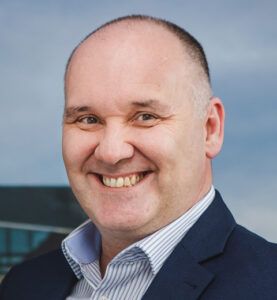FairCharge call for Sunak statement on 2030 target
FairCharge would like to see an official, legally binding, statement from Prime Minister Rishi Sunak so there is “no room for doubt nor misinterpretation” on the 2030 ICE sales ban.
Although the pressure group said it was “encouraged” by minister Michael Gove telling the Radio 4 Today Programme that the 2030 target is “immovable”, it wanted Sunak to go further.
Quentin Willson, founder of FairCharge said: “The UK has a choice in the global race to stay competitive. To have a strong growth agenda, policies need to be firm, and commitments must be kept. Without these policies and regulations, the UK will be faced with just managing the decline of its motor industry.”
The news comes as backbench MP Craig Mackinlay has called on the Prime Minister to delay the sales deadline ‘at least until 2035’ and former Brexit negotiator, Lord Frost, said that green policies were ‘very unpopular’. But the group said that the UK is ahead of the US and EU at present and risked losing out on progress if it stalled.
Ian Johnston, chair of ChargeUK, the voice of the UK’s charging industry, said: “Members have committed over £6 billion to roll out EV infrastructure in all parts of the UK at an unprecedented rate creating good, sustainable jobs, supporting the switch to EVs and thereby reducing emissions and improving air quality for all.
“The phase out of petrol and diesel vehicles from 2030 will be gradual. If government fails to stand firm to its commitments this investment and the supply of EVs entering the market will be at risk.
“ChargeUK members are already providing the infrastructure to support the electrification of transport and to usher in a cleaner future. ChargeUK members are committed to making the UK the best place to own and charge an EV and key to that is having the right charging infrastructure in the right place.”
The groups claim “pockets of the UK media” have described the 2030 deadline as a “cliff edge” – but consumers will be able to buy hybrids until 2035, and ICE cars will still be able to be driven for decades.
It also highlighted the work of OEMs such as Ford, who aim to go all-electric ahead of the 2030 deadline and have said how critical the deadline is.
Martin Sander, European general manager of Ford’s e-division, said: “We’re well on the way to becoming an electric passenger car brand by 2030, with a uniquely comprehensive line-up of vehicles already introduced and inspired by an understanding that EV customers see the world differently. We know from our customers that the biggest barrier to uptake of electric vehicles remains the availability and ease of charging.
Ginny Buckley, founder of Elecrifying.com, said politicians didn’t understand the ‘nuances’ of the mandate and that it would reduce costs for consumers, not increase them, and risking the £8bn contribution to GDP and tens of thousands of industry jobs from delaying.
Electrochemist, Dr Euan McTurk, said the new Tata-financed battery factory in Somerset should be seen as good news – and also that the ban doesn’t mean ICE cars will “disappear overnight”.
“If anyone still insists on running a petrol car in 2030, even in the face of a huge variety of electric vehicles with longer range, faster charging, very long lifespans, an abundance of public charging infrastructure and much cheaper cost of ownership, there will still be used petrol cars available to buy. What we can’t afford to do, however, is keep building new petrol cars that will lock us into many more years of polluting our local air.”
Jeff Townsend, cofounder of Critical Minerals Association, referenced what businesses want from government. He said: “When I ask industry what they want to see from government they always respond with three key issues: a long-term fixed strategy; government skin in the game; lower energy prices.
“This government needs to understand that rowing back from green policies now will reduce investment into the UK in the green economy space. That investment will go to other competitor nations, leaving the UK further behind in 5-7 years’ time. This would be a real disaster.
“Rowing back now is exactly the wrong thing to do. And I would argue demonstrates a complete lack of political talent and articulation if they cannot explain to the electorate why these policies are so important.”





































































































